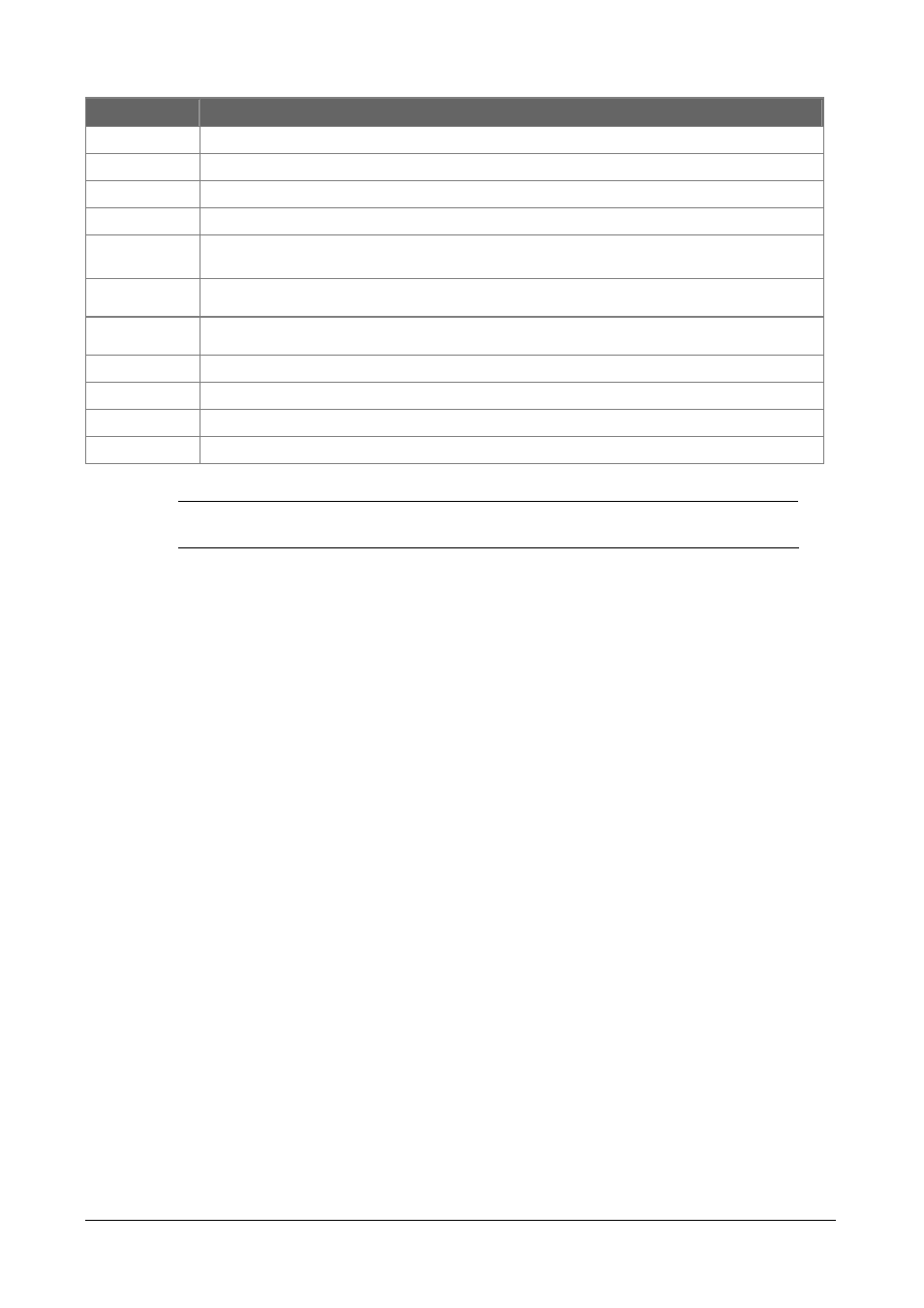9 priority setting, 1 priority mode, Riority – PLANET FGSW-4840S User Manual
Page 30: Etting

User’s Manual of FGSW-4840S
26
Object
Description
Trunk
The Trunk number.
Member
Select the member of the Trunk here.
Storm Control
Configure the storm control for the Trunk here. All member ports of the Trunk share the same setting.
Broad Control
Enable or disable the broadcast control.
Multicast
Control
Enable or disable the multicast control, enabling multicast control will also enable broadcast control.
UL Control
Enable or disable the UL control, enabling UL control will also enable broadcast control and multicast
control.
Limit Rate
Indicates the maximum rate (kilobytes per second) at which the controlled packets configure above
are forwarded. For the 1000M port,if set the value of 64K,the actual value is about 70Kbps。
All Trunk
By operating on this field expediently, you can set the values of all Trunk in the corresponding field.
Select All
Select all Trunk members in the list.
Clean Up
Clean up the Trunk member list.
Submit
Submit to buildup a trunk group with the selected members.
#
Note
:
Be sure that the selected trunk port must connect to the Switch under the same VLAN group
3.9 Priority Setting
The priority setting of the switch can be set to “Disable”, “Port-Based” or “IEEE802.1p”.
The priority setting menus include the tree sub-menus:
Priority mode
Port-Based priority
Port Default priority
802.1p Priority class
3.9.1 Priority mode
The switch provided three priority modes: “Disable”, “Port-Based” or “IEEE802.1p”. The priority rule can be set to
“Weighted” or “Fixed”.
The switch classifies the ingress packets into four classes: “lowest”, “lower”, “higher” and “highest”. When priority rule
is configured as "weighted", a 1,2,4,8 weighting is applied to forward these packets. When "fixed" is selected, all packets
with top priority egress for a switch port until that priority's queue is empty, then the packets with next lower priority.
Example: In case of port-based priority mode:
If "weighted" is configured and the priority classes of four switch ports a, b, c and d are configured as lowest, lower, higher
and highest respectively, when the packets entering from these four ports are queued at one egress port, the switch then
forwards 8 d's packets, 4 c's packets, 2 b's packets and one a's packet at a time.
If "fixed" is configured and the priority classes of four switch ports a, b, c and d are configured as lowest, lower, higher and
highest respectively, all d's packets are forwarded first, then c, b, a. The screen in Figure 3-29 appears.